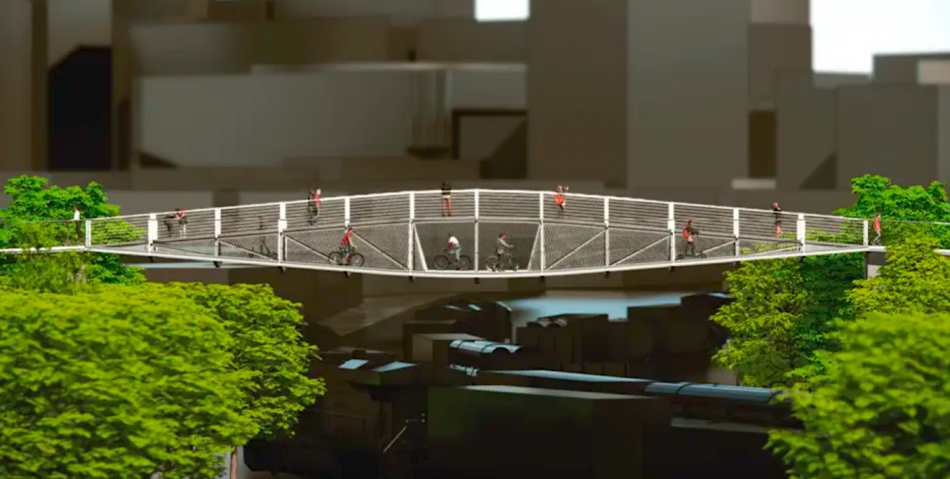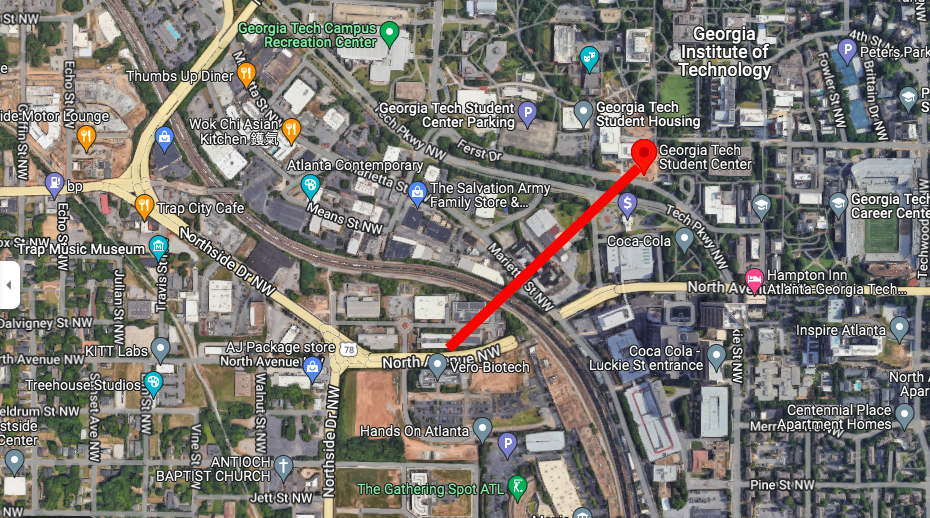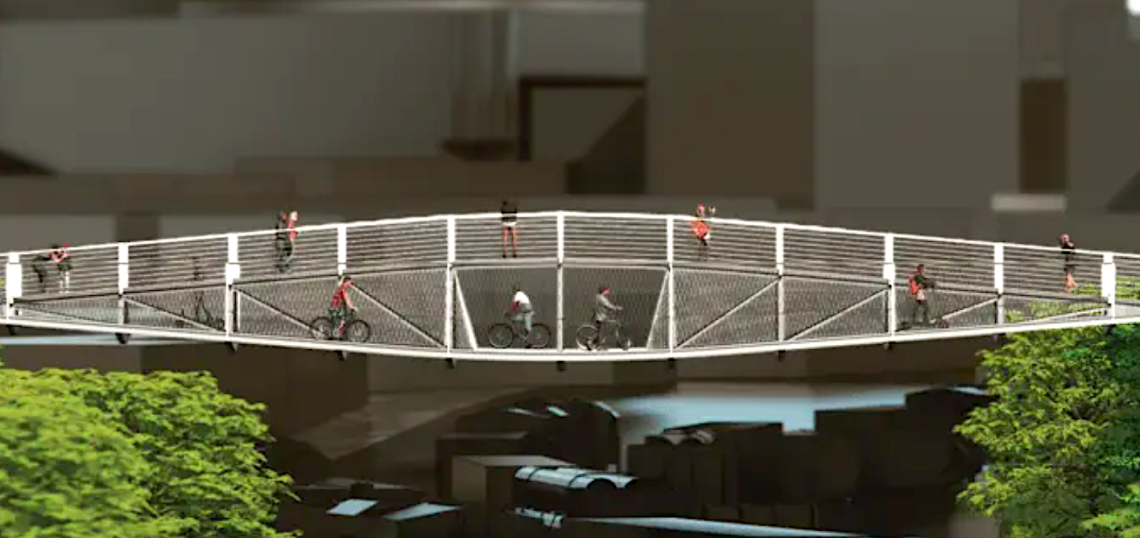A unique, student-designed bridge concept that would link Georgia Tech’s campus to quickly developing blocks around Northside Drive and historic Westside neighborhoods continues to gain applause (and hardware) from industry professionals.
The concept—dubbed the Westside Community Connector Bridge—has been honored this month with a top award from the Structural Engineers Association of Georgia, or SEAOG, marking a rare achievement for student work, according to Georgia Tech officials.
Conceived during Georgia Tech’s fall 2022 semester by a team of graduate students in a civil engineering and architecture studio, the project’s goal is to provide a safe route for pedestrians and bicyclists from the John Lewis Student Center on campus (near the Randall Bros. Construction Materials site redevelopment), over active railroad lines, to the Science Square research and office area, where a two-tower expansion with housing finished construction earlier this year.
Previously, the bridge project won an in-house competition at Georgia Tech judged by academics and industry professionals. This month, it won the Outstanding Project Award in SEAOG’s “other structures and services" category, competing against non-building projects such as pavilions, monuments, towers, art installations, and sculptures.
Every two years, the organization selects the best projects from around Georgia to honor with its Structural Engineering Excellence Awards.
“It’s extremely rare for a university course to win a SEAOG award for Engineering Excellence,” Lauren Stewart, a Williams Family Associate Professor and co-instructor of the course, said in an announcement. “These awards are typically industry-driven with a focus on real projects.”
Which begs the question: Why shouldn’t the bridge also be real?
 Rendering of the relatively lightweight concept meant to accommodate, but separate, pedestrians and bicyclists. Georgia Tech/School of Civil and Environmental Engineering
Rendering of the relatively lightweight concept meant to accommodate, but separate, pedestrians and bicyclists. Georgia Tech/School of Civil and Environmental Engineering
The bridge’s student designers and winning duo—Charles Kim (architecture) and Isaac Wasson (civil engineering)—were inspired by a class trip to London and designs of that city’s iconic Millennium Bridge.
The bridge design calls for a concave bicycle path and convex pedestrian walkway constructed with FP decking, a material that’s lighter and more resistant to corrosion than a metal-and-concrete deck system, per school officials.
Another highlight of the Westside Community Connector Bridge concept calls for unobstructed skyline views, which would be protected by active rail below. Much of the bridge, per Kim and Wasson, could be prefabricated off-site to expedite its construction.
 General future location of the Westside Community Connector Bridge and related pedestrian infrastructure. Google Maps
General future location of the Westside Community Connector Bridge and related pedestrian infrastructure. Google Maps
Previously, judges at Georgia Tech praised the design’s elegance from both architectural and engineering standpoints—and the fact it was the least expensive of five competition finalists.
According to Georgia Tech officials, the Connector concept will be “used as inspiration to one day make this type of campus pedestrian bridge a reality,” though no timeline or budget has been set.
The student-generated bridge design isn't alone in its goal to reconnect Midtown and Westside neighborhoods.
Roughly a block north of Science Square, officials with the PATH Foundation and Georgia Tech, alongside private property owners, have compiled a vision for another Westside link to Georgia Tech, and vice versa, as a replacement for the century-old Bankhead Avenue Bridge. Also, a couple of blocks west of there, the 1.7-mile Westside BeltLine Connector opened in 2021 as a multi-use trail link between downtown and the area around Westside Park.
...
Follow us on social media:
Twitter / Facebook/and now: Instagram
• Georgia Tech news, discussion (Urbanize Atlanta)






